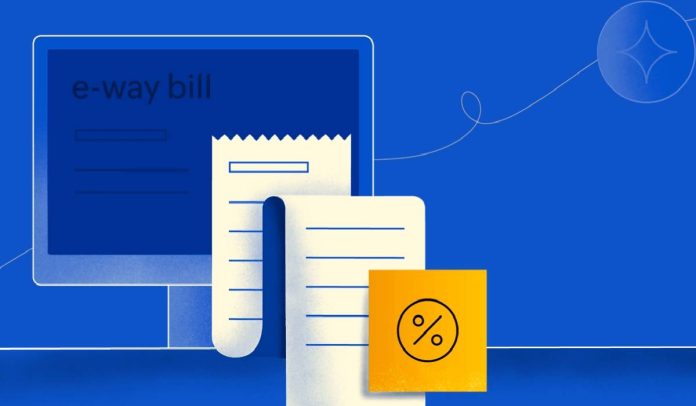The last decade has seen customers shifting from conventional offline shopping to purchasing items online, thanks to the incredible growth of e-commerce platforms. In 2024, the e-commerce market in the country was valued at around US $123 billion and is expected to surge up to US $325 billion by 2030! Customers can now shop on online marketplaces for anything and everything—from groceries and medication to appliances and furniture.
However, effectively dealing with the complexities involved with the Goods and Services Tax regime is vital for businesses to streamline operations and avoid compliance issues. Thus, it is important to understand e-way bill compliance for e-commerce businesses and its future implications.
Table of Contents
What are e-way bills
In the past, transporting goods and services within and out of state involved several documentation checks, which hampered delivery times and complicated logistics. However, with the introduction of the e-way billing system, it is now possible to track and monitor the movement of goods in real time. This electronic document, which is mandatory for consignments exceeding the value of Rs. 50,000, optimises logistics and enhances compliance for e-commerce businesses.
The e-way bill system intends to:
- Improve transparency: Keeping a digital record of the movement of goods ensures that e-way bills help tax authorities and prevent chances of tax evasion.
- Streamline and simplify logistics: Through e-way bills, you can monitor and track the transportation of goods, ensuring smooth deliveries and reducing delays at checkpoints.
- Eliminate manual procedures: E-way billing system encourages automation and reduces the reliance on paper-based documentation.
Future of e-way bills in e-commerce
When it comes to the future of e-way bills in the e-commerce sector, it is expected to improve automation, integrate with other systems such as e-invoicing, and improve data analytics. This will result in smoother and more efficient supply chain management and improved compliance for businesses.
Even other sectors, such as banks and NBFCs, will greatly benefit from this evolution, as greater emphasis will be placed on real-time tracking and faster delivery times, owing to better logistics optimisation. However, e-way bills may have to be linked with e-invoices as per recent updates, which can potentially block the generation of e-way bills if correct e-invoice details aren’t provided.
Important aspects pertaining to the future of e-way bills in the e-commerce sector
- Enhanced automation: In the near future, we can witness fully automated e-way bill generation without any manual intervention. This can be done through AI and machine learning, which can predict shipment details and generate bills.
- Integration of e-invoices: By creating a stronger link between e-way bills and e-invoices and requiring e-invoice details to generate e-way bills, we can ensure more accurate data across systems.
- Improved analytics: In the future, we can use data from e-way bills to obtain insights into delivery times, transit routes, and possible pain points for improved logistics planning and cost optimisation.
- Blockchain technology: We can also witness the potential use of blockchain technology to improve security and transparency in the tracking and monitoring of goods as they move across the supply chain.
- Real-time monitoring and tracking: By improving real-time tracking capabilities, you can monitor shipments in transit, allowing you to keep customers updated on the delivery status.
- Compliance-centric: By strictly enforcing e-way bill regulations and levying penalties for non-compliance, it will be possible to push businesses to maintain accurate and timely e-way bill generation.
Conclusion
In the near future, e-way bills are expected to streamline supply chain management and push businesses to comply with the regulations. Improved automation will also remove the need for manual intervention during the e-way bill generation, simplifying the process. However, there may be a few challenges, such as technical complexity, adapting to regulatory changes, and ensuring accurate data entry.
However, businesses can implement robust management systems, create clear communication channels with all logistics partners, and use inventory management software to ensure accurate data entry while generating e-way bills. In India, e-way bill compliance is vital for e-commerce businesses to operate. By understanding the regulations, using advanced technological solutions, and applying best practices, e-commerce businesses can streamline operations and remain compliant with GST regulations.


Review The Future of E-Way Bills in E-Commerce.